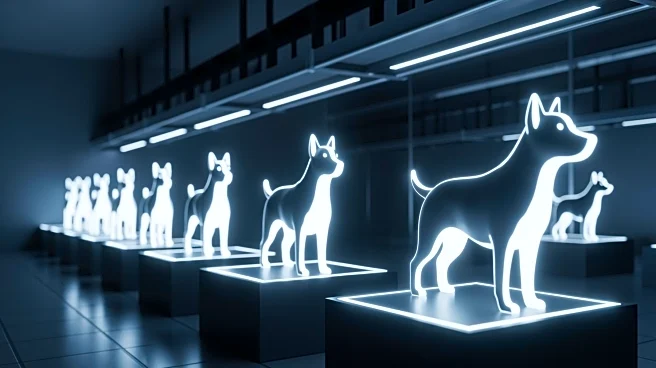What's Happening?
Tom Brady has announced the cloning of his deceased dog, Lua, as part of a brand activation with Colossal Biosciences. Brady's new dog, Junie, is a genetic clone of Lua, created using preserved DNA. This
move is part of Brady's investment in Colossal Biosciences, which recently acquired Viagen, a company known for cloning pets of celebrities like Barbra Streisand. The cloning process, which costs $50,000 for dogs, is marketed as a non-invasive technology, though it raises ethical questions about the nature of cloning and the individuality of cloned pets.
Why It's Important?
Brady's involvement in pet cloning highlights the intersection of celebrity influence and biotechnology. It underscores the ethical debates surrounding cloning, particularly the notion that cloned animals may not replicate the personalities of their predecessors. This development also reflects broader trends in biotech investments, where companies like Colossal Biosciences leverage high-profile partnerships to boost their market presence. The move may influence public perception of cloning technologies and their applications in consumer markets.
Beyond the Headlines
The cloning of pets raises significant ethical and scientific questions. While the technology has advanced, the success rate remains low, and cloned animals often differ in personality from their originals. This case exemplifies the commercialization of scientific advancements, where emotional connections are monetized. It also prompts discussions on the role of genetics versus environment in shaping animal behavior, challenging the notion that genetic clones can fully replicate the original animal's essence.











